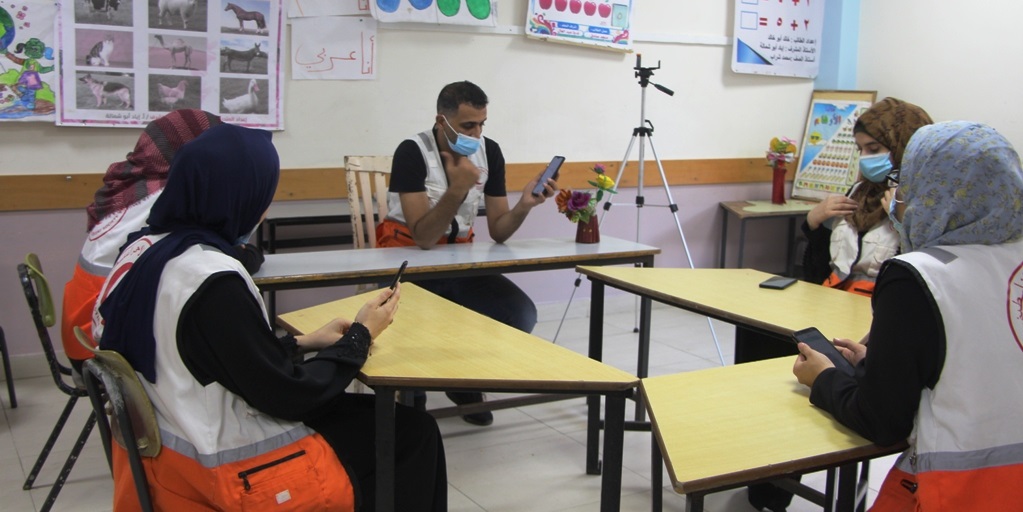
Mou’men Khalifeh (36) is a volunteer facilitator at the Rehabilitation Department’s Open Studio in the Gaza Strip. Together with his colleagues, he reached out to students via social media during the COVID-19 pandemic and ensuing lockdown to ensure they have continuous access to skills and ability development activities.
Mou’men facilitates a number of artistic activities including Palestinian popular dance (dabkeh) sessions at the Open Studio. “Around 200 children from the local community, some with disabilities, usually take part in these activities. When the lockdown started, the Rehabilitation Department asked us to provide students with tutorials on how to create art. Given that brushes and colors were not readily available, I sent out tutorials on how to make homemade brushes and paint using straw, toothpaste, plastic cups, food coloring and flour. This way, students kept busy and also had fun during lockdown”, Mou’men said.
According to Camilia Abou Athreh, who works at the Society’s Rehabilitation Department, “the Department endorsed this wonderful idea right away. It provided the means to make these tutorials which it then disseminated through its Facebook page and WhatsApp groups to children and their parents. Every day, children would send us the works of art they produced this way. It was a great success story!”.
The Rehabilitation Department has decided to roll out this successful experience. To this end, sessions were organized with rehabilitation specialists, volunteers and teachers during which safety measures in relation to COVID-19 were observed. The sessions focused on electronic communication tools, shooting video with cell phones, creating content, and measuring levels of interaction. Rehabilitation teachers have since adopted and developed various electronic communication tools to reach out to children, and parents have applauded these initiatives given their positive impact on children, especially those with disabilities.
Umm Mohamad (47), spoke about her experience in this field: “We were under a two-week lockdown. My daughter Reemas is nine years old and autistic. Her condition deteriorated when home visits by the rehabilitation team stopped. She became anxious and fearful. I contacted the team via their Facebook page and sought their help. We started communicating electronically and via my mobile phone. They sent me WhatsApp videos of activities that can be carried out at home, and my daughter’s condition improved tremendously, as did the wellbeing of my entire family”.